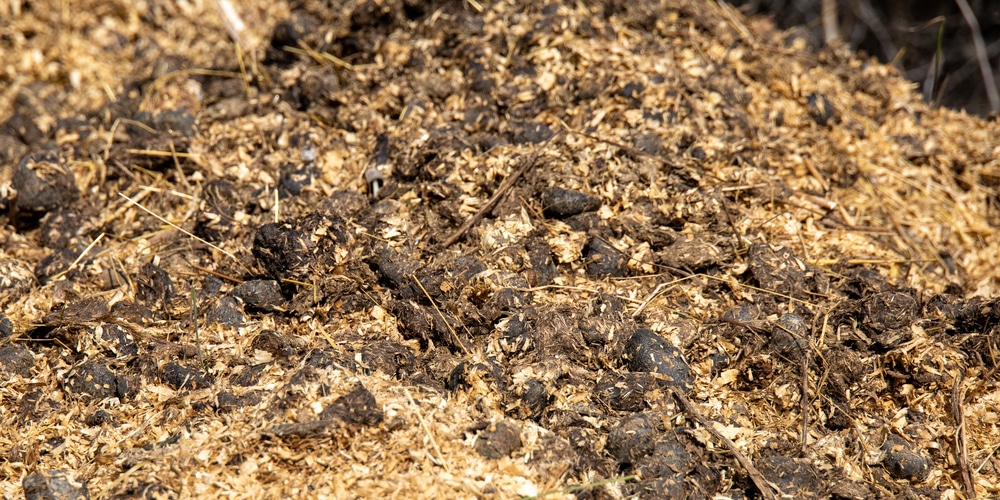Flies are a common occurrence on compost piles. They lay their eggs in the decomposing material, and the larvae that hatch feed on the rotting organic matter.
While most of these flies are harmless, there are a few species that can be troublesome.
In this article, we will discuss the different types of flies that you might find on your compost pile, and what to do about them!
Are Flies A Bad Sign In My Compost Pile?
If you find flies buzzing around your compost pile, there’s no need to worry. In fact, their presence is actually a good sign that decomposition is taking place. Flies are attracted to rotting organic matter, which they lay their eggs in. The larvae that hatch from these eggs then help to break down the material even further.
In addition, the flies help to distribute bacteria and other microorganisms throughout the compost pile, further aiding in decomposition. So, while a few flies around your compost bin may not be aesthetically pleasing, they’re actually helping to create nutrient-rich compost for your garden.
Help, There’s Too Many Flies!
If you’ve noticed an uptick in the number of flies around your compost pile, don’t despair – there are a few simple things you can do to get rid of them.
Wrap It Up
If you’re an avid gardener, chances are you’ve got a compost bin where you dispose of your kitchen or food waste. But if you’re not careful, your compost bin can become a breeding ground for flies.
The best way to prevent this is to wrap your kitchen or food waste in newspaper or paper before adding it to the bin. This will help to keep the flies out and reduce the number of unwanted pests in your compost. Plus, it’s a good way to recycle those old newspapers!
Aerate Your Pile
Flies are attracted to decomposing organic matter, so the first step is to make sure your pile is properly aerated. If there’s not enough oxygen reaching the center of the pile, the decomposition process will slow down and produce more methane, which is a major attractant for flies.
You can aerate your pile by mixing in some dry leaves or straw, or by turning it with a pitchfork every few days.
Limit Their Food Supply
If you’re still seeing a lot of flies, it might be because they’re finding food elsewhere on your property. Make sure to clean up any fallen fruit or vegetable scraps from your garden, and keep your compost bin covered so that flies can’t get in. You can also try adding a layer of dry leaves or straw on top of the pile, which will help to discourage them.
Mix More Brown Matter Into The Pile
If your compost pile is too wet, that’s another major attractant for flies. Make sure to mix in some dry leaves or straw to absorb excess moisture. You can also try adding a handful of sand or soil to the mix, which will help to improve drainage.
Raise The Ph Of Your Pile
One of the most effective ways to discourage flies is to raise the pH of your pile. This can be done by adding a handful of lime to your compost each time you turn it. The lime will help to neutralize the odors that attract flies, and it will also help to keep the pile from becoming too moist. As a result, your compost pile will be less attractive to flies, and you will be able to enjoy your garden in peace.
Use A Fly Trap
If you’ve tried all of the above and you’re still seeing flies, you can try setting out a fly trap. There are many different types of fly traps available, so choose one that best suits your needs. You can also make your own fly trap with a simple jar and some bait.
Bait the jar with a piece of overripe fruit or a small amount of honey, and then cover the mouth of the jar with plastic wrap. Make sure to poke a few holes in the wrap so that the flies can get in. The flies will be attracted to the bait and will crawl into the jar, but they won’t be able to get back out.
The Bottom Line
While flies may not be the most pleasant creatures, they can actually be helpful in the composting process.
However, if you’re seeing too many flies around your compost pile, there are a few things you can do to get rid of them. By following the tips above, you can keep your compost bin fly-free and enjoy your garden in peace. Thanks for reading!

